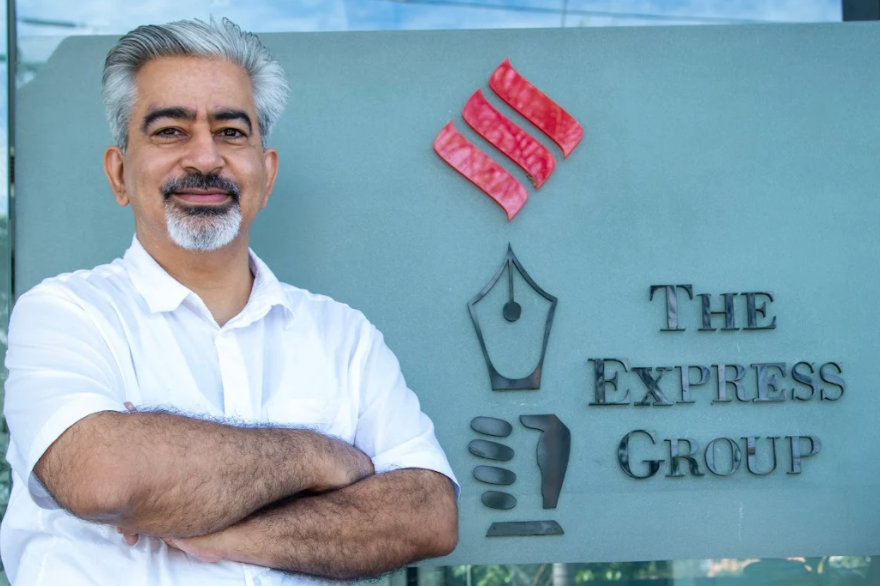
Before the Covid-19 crisis shook up the global news industry, Indian Express Online chief executive Sanjay Sindhwani believed he had up to seven years to perfect his paywall strategy.
Two years ago, India’s print newspaper industry was looking strong and there was little pressure on affiliated news websites to generate non-advertising revenues.
In December 2019, the Indian Express started charging readers for access to its e-paper as an “experiment” but, as far as Sindhwani was concerned, “there was no hurry to go into subscriptions” through a paywall.
“Four months later, Covid happened, print distribution was disrupted, and after another three, six months, we thought: subscriptions have to move faster than we originally thought.”
Now Sindhwani is putting the final touches to his website’s paywall, which he believes can ultimately attract around 2m paying readers.
Click here to subscribe to Press Gazette’s must-read newsletters, Future of Media and Future of Media US |
“In 2019, we said the digital ecosystem will take six to seven years to make subscriptions a large, viable play,” Sindhwani tells Press Gazette in a phone interview.
“I think what has happened in the last two years is the digital ecosystem … has accelerated. Whether it is ordering food, education, work from home – all aspects of digitisation have [accelerated].
“So that is what gives us the confidence that the scale of subscriptions that we were earlier anticipating would take seven years to get there, now probably we can anticipate that in two to three years.”
Sindhwani was appointed chief executive of IE Online Media Services, the digital arm of Indian Express Group, in 2019. The group includes indianexpress.com, financialexpress.com, jansatta.com and loksatta.com. Together, Sindhwani says the sites attract roughly 200m unique users a month.
Sindhwani’s initial paywall efforts will focus on the publisher’s main site, indianexpress.com, which accounts for about 100m of its monthly unique users. London-based platform Evolok is working with the Indian Express to “establish a paywall, manage customer profiles, provide support for social registration, and create a single login feature for friction-free customer journeys”.
Like many other news organisations across the world, the Indian Express’s push towards digital subscriptions has been partly motivated by problems with the digital advertising model. The market, already dominated by tech giants Google and Facebook, was battered by the pandemic early last year.
“The first quarter was really bad, to be honest,” says Sindhwani. “Because the demand just fell and prices also fell. So revenues took a big hit. I think we were down by almost 50% during those three months. But thereafter demand picked up and some big projects started materialising.”
Sindhwani says Indian Express will be one of India’s first national news websites to launch a subscription business. But he believes that others are likely to follow shortly.
“I think everybody’s actively looking at it right now,” he says. “Different people are at different stages in their journey.
“The financial newspapers obviously are at the forefront because the business model and the business use case is much stronger in that domain.
“In the general news category, I think there are a couple of us who are taking the lead. And there are some digital players who are toying with how they [can] monetise their direct consumer revenues in a better way.”
There are risks for the Indian Express online. Newspaper circulations are recovering from Covid-19. And, because it will be one of India’s first paywalled news websites, readers will still have a large variety of free news to choose from. Sindhwani is not overly concerned by this.
“I don’t see that as a threat,” he says. “I think good quality content will keep good investment in journalism. And I don’t think an ad-led model really allows you to do that.”
He adds: “I think the two strategies can co-exist. One, which is largely skimming light content, the casual readers, dependent on search, and using advertising as a model – a low-margin, high-volume kind of play.
“Subscription, on the other hand, will be a low-volume, higher-margin quality journalism kind of play.
“So with India being a big market, you’ll find enough room for both sides of the play.”
Ultimately, Sindhwani believes “most mainstream media will largely play on both ends” by offering some free content to attract readers and encourage them to pay for subscriptions.
The Indian Express metered paywall, which will allow readers to access some free content, is due to go live within the next month.
Persuading readers to pay for online news is a challenge – especially when they are used to the idea of web content being free. But Sindhwani is confident the Indian Express can succeed because of the quality of its journalism.
To support its growth aspirations, the Indian Express is expanding its digital workforce fast. Sindhwani says his team will grow to around 450 by the end of this year, up from 300 last year.
“We are adding a lot of people across teams – and at least half of the people are in content and journalism,” he says.
“We believe that content is at the core of our subscription strategy.
“And Indian Express has always stood for the kind of journalism that makes us stand apart.
“This gives us confidence that even in the general news category – which is very, very competitive – we have a strong chance of success.”
Email pged@pressgazette.co.uk to point out mistakes, provide story tips or send in a letter for publication on our "Letters Page" blog






